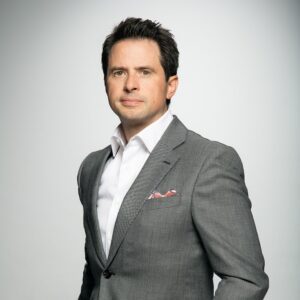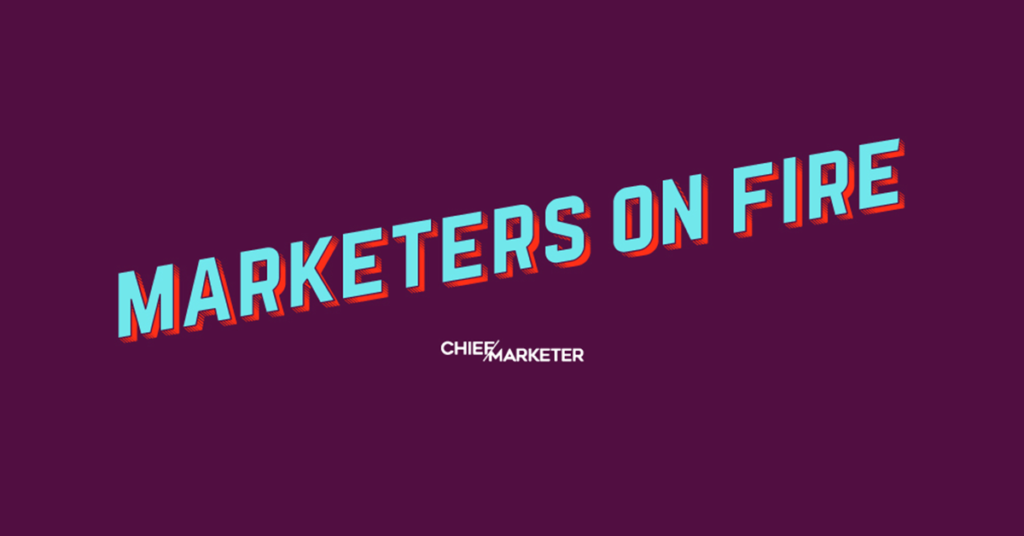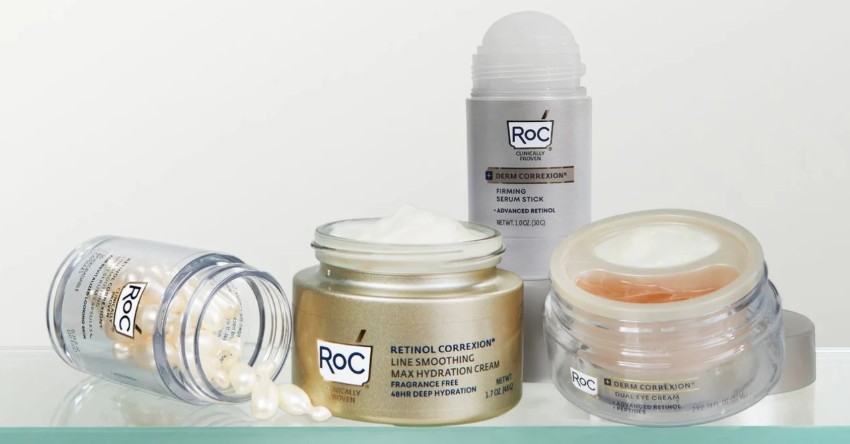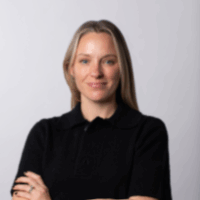In the early days of the pandemic, small businesses were seriously struggling to stay afloat, inspiring many brands to offer free products, tools and services as a way to lend a helping held during trying times while simultaneously increasing brand loyalty. But for American Express, the goal quickly became to provide something highly useful for these companies in the long-term: business education.
We spoke with Clayton Ruebensaal, EVP, Global B2B Marketing at American Express, about how the crisis inspired the brand to take pause and deliver actual value to small business owners through its Business Class initiative. He also dishes on how American Express sets itself apart from competitors to maintain market share, its vision for democratizing business education and the trend he thinks the marketing community should be laser-focused on.

Chief Marketer: What was the impetus behind the “Business Class: The Series?”
Clayton Ruebensaal: One of the things I found really challenging as a marketer was the beginning of the pandemic. Consumers were getting bombarded by every brand. Everybody was going to help see you through the pandemic. At American Express, we saw that small businesses were struggling, but we wanted to make sure that we raised our hand and our voice in the conversation in a way that would be sincerely helpful.
We paused, quite honestly, for a couple of weeks. And what we quickly saw was that small businesses were not just pivoting, but [dealing with] a lot of questions, like, what do I do about my work-from-home policy? What do I do about a travel policy? What are these PPP loans? How do I get them? Should I get them? How do I pivot my physical business to be more ecomm? So, we started Business Class to answer these questions. We have access to great business people—small businesses, midsize businesses, big businesses, a lot of experts, a lot of our own content. The first step was taking our e-newsletter, which was—like a lot of big companies—more promotional in nature, and pivoted it to be an educational resource.
By starting to answer some of those basic questions, without much glitz or glamor or production value, just the information you need to know, we saw our open rates spike from 10 percent to 30 percent on top of going from sending it once a week to starting Business Class Daily, as we called it. If you go from once a week to once a day, you would expect the engagement to go down, but what I saw was that our customers really trusted the voice of American Express to help them navigate this. It was built on the shoulders of what we had done with Small Business Saturday, Shop Small, Open Forum… We have a long track record, thanks to our predecessors, of seeing a challenge small businesses are going through and building something to help them navigate it. That was the impetus for Business Class, and then it grew from there.
CM: How does the Business Class initiative benefit the brand specifically?
CR: As we started to get more serious, sophisticated and organized enough, the idea of democratizing business education could be a bigger thing. When customers engage with business content, they’re 132 percent more likely to buy. (One of the planners at our agency brought that to us.) If you learned everything about cars from a car company, you’d probably be more likely to buy your car from them. In this case, if American Express is helping you navigate the pandemic, can we grow into helping you learn common gaps of knowledge small business owners have? How do I do marketing? How do I do sales? How do I become a better leader? How do I do my financing? How do I do my budgeting better? If we can provide that content, it’s going to create a deeper level of engagement, a deeper relationship, and probably wanting to buy products and services from us.
CM: How has the program evolved?
CR: We’re putting more production dollars into the series with bigger talent on the director side, the host side and the production company. [We’re using] people like Tom Colicchio, Jonathan Adler and Rebecca Minkoff to continue to earn that attention. It’s going to get harder and harder overtime, because people are going back to business now. In those first days of the pandemic in 2020, people were stuck at home and literally quarantined. We had their complete attention. So, we’re taking the seeds that worked at the very beginning and then adding a lot more rigor, production value and talent to the mix.
CM: How are you getting the content from the Business Class initiative into the hands of these small business owners?
CR: It’s through most of our channels. The approach we took from a production standpoint was to be as efficient with our dollars as possible. We are investing a lot of money in the production, but with an eye toward how this can go through all of our channels. Social media is a big place where we market this. Instagram has been very fruitful for us. We’re marketing it through our newsletter, our website, through direct sales. We have a huge sales force and they’re meeting with clients every day. We’re doing so through online events.
We started something called Office Hours, which was just what it sounds like. We’d bring in somebody like Luke Holden from Luke’s Lobster to talk about how he was pivoting from a totally physical business to a much more ecommerce-driven business. We’re marketing it through some owned channels, some earned channels and PR, but also through paid media. On a monthly average, where we’re getting in almost half a million users and over 90 percent of those are prospects.
We want our customers to see marketing as part of the value equation. This is marketing to attract people to the brand, but it’s also marketing where every time you engage with an ad, a social media post, an event, the video series with Tom Colicchio and a small business owner from Mexico, you’re going to learn something. There’s utility in it. It also makes me proud as a marketing director. It’s not just pushing messages out there, but creating something that really is useful. And I’m judging that usefulness by how many people are opting in versus pushing it on them.
CM: How does this relate to American Express supporting inclusivity in businesses?
CR: We went through a flood of trauma as a society, first with the pandemic, being a health crisis, then it becoming an economic crisis, then with the death of George Floyd, a racial crisis. In that moment, we took this thing that was working and pointed it towards black business owners. This is a wild statistic that I love: Black women entrepreneurs were starting more businesses than any other segment in the country. So, we chose to focus on that audience initially. This was another place we could take our business education and be helpful, but also with a more formal rigorous education program for them which we call “100 for 100:” one hundred days of business education for one hundred select black women entrepreneurs.
We also saw it as a way of investing in the next business winners of tomorrow. We had black women entrepreneurs who were starting a really diverse range of businesses, from pharmaceuticals, technology, fashion, nutrition, fitness. It was a way from American Express to invest in these businesses that would become our next big customers. Every recession through time has created really huge businesses, from IBM and GE to Facebook and Uber. We’re optimistic that out of a group of 100 for 100 we might see some of the next Facebook and Ubers.
CM: Is this vision new for the brand or was it a direct result from the pandemic?
CR: It was percolating before that, but the pandemic really was when we started it. What was percolating was the need. We saw that small business owners go into business for one of two reasons: to put food on the table or because they have one expertise. I started a business a long time ago as an advertising agency because I was good at advertising. What I wasn’t good at was all the other stuff. I didn’t know how to sign up for benefit plans. I didn’t know how to do technology for my business. The major segment that we serve are people who own construction companies, people in the medical field, the restaurant business. They’re superheroes at one thing and that’s why they are able to make money. They needed easy access to critical assets that would help you in the real world. We saw that as a big gap and opportunity, but the pandemic opened our eyes to how and when.
CM: There are a lot of other options out there for small businesses in terms of the products and services that you offer. How do you differentiate yourself from competitors?
CR: When I look at what our competitors, whether it’s our traditional competitors in finance or the big tech companies, what they put out there is high quality. We think there are three things you have to do, and we think they all do two of them very well. It has to be useful, no question about it. The education has to be educational. Number two, it has to be digital. You have to make it easy to access. The things that we’ve done differently that is going to make us more successful is that we believe it has to be entertaining. We have always risen above the crowd when it comes to nailing lifestyle, whether you’re thinking about the black card, Coachella or our partnerships with people like Equinox. We do business education in a way that a lifestyle brand would do it, not the way a tech brand or financial services brand would do it.
CM: What are the most important trends in marketing that executives should be keeping an eye on?
CR: I think the biggest change is the reality of the cookie-less world, from European regulators to California regulators to the battle between Facebook and Apple. It’s going to change the landscape in a fundamental way. And I find it exciting. The people who will live are people who can earn traffic, who have large audiences, who can build larger audiences, and then keep them engaged. It’ll make the marketing more effective from an economic standpoint.
Data companies have done a great job with the effectiveness of marketing. They’ve gone much more into building out content ecosystems, investing in their CRM, and I’m inspired by that and learning a lot from that. We’ve been praying at the altar of performance marketing because it’s so trackable and therefore predictable, which is great. Over time, it’s made us a little bit less grateful for the other great channels out there that also command attention, whether newspaper or radio or outdoor or TV. It’s almost been a faux pas to talk traditional media.
Going back to the tech companies, the truth is they invest a lot in outdoor. I see them investing a lot in TV, even ones that said they never would. As a marketing community, it’s going to bring a more balanced approach to how we go out into the world. We’ll see the results over time rather than in real time. And I think we’re going to have to invest a lot more in earning our attention rather than stalking people—and I think that’s a good thing.




 Network
Network

